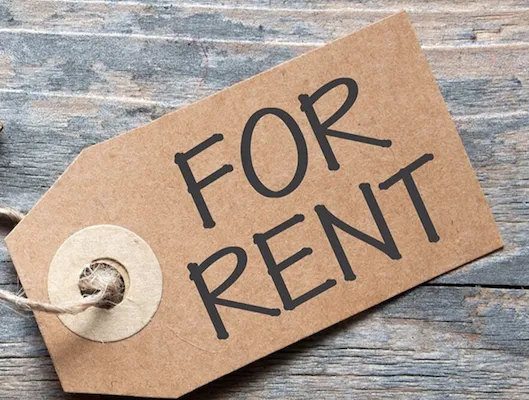
Common Lease Clauses Explained: What to Look for in Your Contract
When it comes to renting a home, understanding your lease agreement is critical. This guide breaks down essential lease clauses, helping renters know their rights and responsibilities. Learn more about renting here.
Signing a lease is an exciting step, whether you're moving into your first rental or relocating to a new space. However, leases can be dense, filled with legal jargon that might be confusing or easy to overlook. It's essential to understand what you're signing to ensure you’re protected and aware of your obligations as a tenant. This blog dives into common lease clauses, what they mean, and why they matter.
1. Lease Term and Renewal Options
What It Covers:
The lease term outlines the duration of your rental agreement, such as six months, one year, or month-to-month. Renewal options specify whether the lease can be extended and under what terms.
Why It’s Important:
Knowing the lease term helps you plan your living situation and avoid unexpected changes. Some leases automatically renew unless you or the landlord provide notice, so understanding renewal policies can save you from surprises.
What to Watch For:
Does the lease auto-renew?
What’s the notice period for termination or renewal?
Are there penalties for early termination?
2. Rent and Payment Terms
What It Covers:
This clause includes the monthly rent amount, due date, accepted payment methods, and late fees.
Why It’s Important:
Late or missed payments can lead to penalties or even eviction, so clarity on rent terms is crucial.
What to Watch For:
Accepted payment methods (e.g., online, check, direct deposit).
Late payment grace periods and fees.
Penalties for bounced checks.
3. Security Deposit
What It Covers:
A security deposit is a refundable fee landlords collect to cover potential damages or unpaid rent. This clause explains the deposit amount, conditions for deductions, and the timeframe for refunding it after you move out.
Why It’s Important:
Understanding this clause helps ensure you get your deposit back if you meet the lease terms.
What to Watch For:
Specific conditions that allow the landlord to deduct from the deposit.
The timeframe for receiving your refund.
Whether the deposit accrues interest.
4. Maintenance and Repairs
What It Covers:
This section clarifies who is responsible for maintaining the property and handling repairs.
Why It’s Important:
Misunderstanding maintenance responsibilities can lead to disputes or unexpected expenses.
What to Watch For:
Are tenants responsible for minor repairs (e.g., light bulbs, HVAC filters)?
Who handles major repairs, like plumbing or electrical issues?
The process for reporting repair needs.
5. Pet Policy
What It Covers:
The pet policy specifies whether pets are allowed, what types, and any related fees or restrictions.
Why It’s Important:
Violating a pet policy could result in penalties or eviction.
What to Watch For:
Are pets allowed? If so, are there breed or size restrictions?
Are pet deposits or monthly pet fees required?
Are service animals exempt from restrictions?
6. Occupancy Limits
What It Covers:
This clause defines how many people can legally live in the rental unit and whether subleasing or additional occupants are permitted.
Why It’s Important:
Violating occupancy limits can lead to eviction or legal action.
What to Watch For:
Limits on the number of occupants.
Rules for hosting long-term guests.
Subletting or roommate policies.
7. Termination and Eviction Policies
What It Covers:
Termination clauses outline the conditions under which the lease can be ended, either by you or the landlord. Eviction policies explain the process for removing tenants who breach the lease.
Why It’s Important:
Understanding these policies can help you avoid legal and financial trouble.
What to Watch For:
Notice period for ending the lease.
Grounds for eviction, such as non-payment or property damage.
Early termination fees or penalties.
8. Alterations and Modifications
What It Covers:
This clause details whether tenants can make changes to the property, like painting walls or installing shelves.
Why It’s Important:
Unauthorized modifications can lead to fines or loss of your security deposit.
What to Watch For:
Are alterations allowed?
Do you need written permission from the landlord?
What happens if you fail to restore the property to its original state?
9. Utilities and Services
What It Covers:
This section clarifies which utilities (e.g., water, electricity, gas, internet) are included in the rent and which are your responsibility.
Why It’s Important:
Utility costs can significantly impact your monthly budget.
What to Watch For:
Are utilities included in the rent?
Who handles setup and billing?
Are there fees for shared utilities, like trash removal?
10. Prohibited Activities
What It Covers:
This clause lists activities that are not allowed on the property, such as smoking, operating a business, or hosting large parties.
Why It’s Important:
Violating these rules can lead to fines or eviction.
What to Watch For:
Specific activities prohibited on the property.
Consequences for violating the rules.
11. Insurance Requirements
What It Covers:
Some leases require tenants to carry renter’s insurance to cover personal belongings and liability.
Why It’s Important:
Renter’s insurance can protect you financially in case of theft, fire, or other incidents.
What to Watch For:
Is renter’s insurance mandatory?
What coverage is required?
Are you responsible for damage to common areas?
Final Thoughts
A lease is more than just a piece of paper; it’s a legally binding agreement that affects your living experience. By carefully reviewing and understanding these common clauses, you can avoid misunderstandings and set yourself up for a smooth rental experience.
For more insights and resources, visit MTX Homes Renting.
